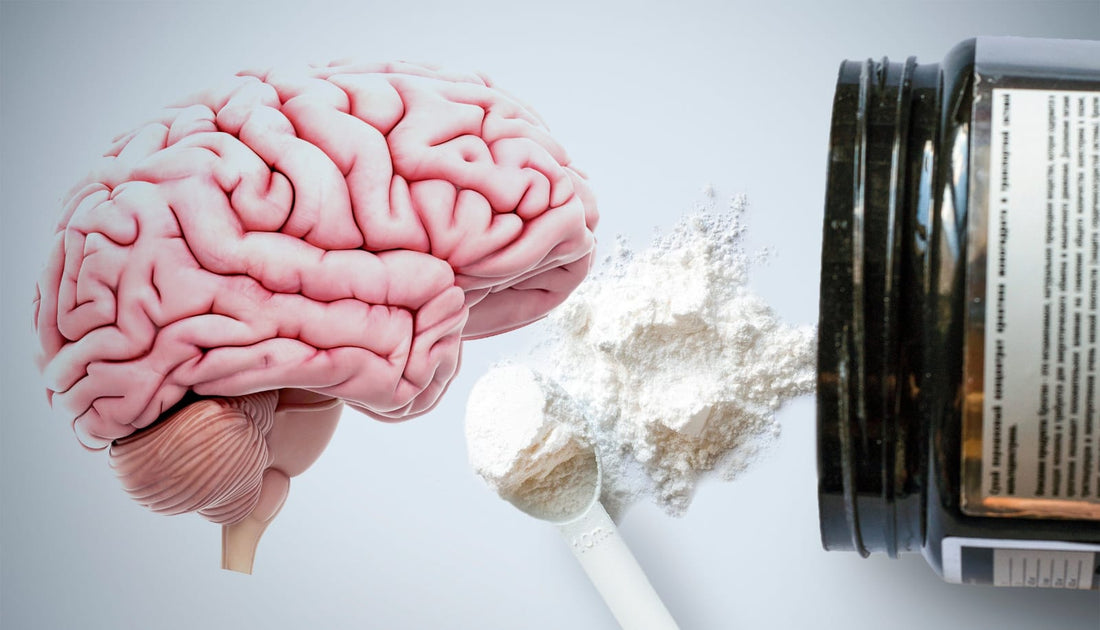
Can Creatine Help Treat Depression?
Share
Creatine is a popular supplement among athletes, known for boosting strength and performance. But new research suggests that it could also play a role in improving mental health—especially in treating depression. Let’s break down what scientists are finding and why it matters.
What Is Creatine?
Creatine is a natural compound made from amino acids, and it’s found mostly in muscles, with small amounts in the brain, liver, and kidneys. It helps the body quickly produce energy during activities that need a lot of effort, like lifting weights or sprinting.
You can get creatine from foods like red meat and fish, but many people also take it as a supplement. In muscles, it works by helping recharge ATP (adenosine triphosphate), the main energy molecule in cells.
Why Is Brain Energy Important for Depression?
The brain is a tiny organ compared to the rest of the body, but it uses a lot of energy—about 20% of your body’s total at rest. When the brain doesn’t have enough energy, it can cause problems.
Scientists are learning that depression isn’t just about chemical imbalances; it may also involve energy shortages in brain cells. Problems with mitochondria—the "power plants" of cells—can make it harder for the brain to function properly, contributing to symptoms like fatigue, sadness, and trouble concentrating.
This has led researchers to explore whether boosting brain energy could help treat depression.
How Might Creatine Help?
Creatine in the brain works like it does in muscles: it helps quickly restore energy when cells are under stress. During depression, the brain may be under greater metabolic demand, and the usual energy systems can become overwhelmed.
By increasing the brain’s supply of phosphocreatine, creatine supplementation could help:
- Support faster ATP recovery
- Improve brain cell function
- Protect against mitochondrial stress
Some studies show that creatine can cross the blood-brain barrier, although it’s slower than in muscles. This means that higher doses or longer supplementation periods might be needed for brain effects.
What Does the Research Say?
Recent trials have shown promising results:
- Adding 5 grams of creatine daily to standard antidepressant treatment (like SSRIs) led to faster and greater improvements in depression symptoms.
- Creatine also seemed to boost the effects of cognitive behavioral therapy (CBT), helping people engage better with treatment.
- Higher creatine intake from food was linked to lower rates of depression, especially in women aged 20–39.
Although these findings are exciting, experts caution that most studies are still small. More research is needed to find the best doses and combinations.
How Much Creatine Would You Need?
The amounts used for brain benefits might be higher or more prolonged than for muscle gains. While athletes often do a "loading phase" of 20 grams a day for a week and then maintain at 3–5 grams daily, boosting brain creatine may require:
- Higher daily doses (still under medical supervision)
- Longer periods of consistent use
It’s important to note that diet alone (like eating lots of meat) isn’t enough. A single scoop of creatine powder gives you about the same amount as eating 3 pounds of beef—which isn't practical.
Should You Consider Creatine for Mental Health?
Creatine looks promising, but it’s not a stand-alone cure for depression. Instead, it may work best as an add-on to traditional treatments like medication or therapy.
If you’re interested:
- Talk to your doctor before starting any supplement, especially if you have kidney issues or other health concerns.
- Stay patient—brain effects may take longer to show than physical performance gains.
- Focus on overall care—sleep, diet, exercise, and therapy are still key pillars of managing mental health.
Final Thoughts
Creatine isn’t just for bodybuilders—it could also become a valuable tool for supporting mental health. By helping the brain meet its energy needs, creatine offers a new and hopeful approach to treating depression. As research continues, it could one day become a regular part of depression care for many people.
